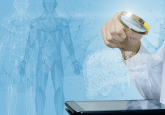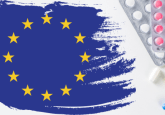Deloitte’s 2022 study: RWE’s evolution into a true end-to-end capability

The Deloitte Centre for Health Solutions’ 2022 Insight article expounds how RWE use has been transformed by its pivotal role during the COVID pandemic and investment in diverse RWD technologies and applications, to become integral throughout product lifecycles.
Deloitte have published the latest in their series of real-world evidence (RWE) benchmarking studies. It details how real-world data (RWD)/RWE application has become integral across all stages of product lifecycles, following the precedents set by its pivotal role during the COVID pandemic.
During spring 2022, the Deloitte Center for Health Solutions surveyed 17 executives from global biopharma companies and interviewed 10 leaders from industry groups, research organizations, and RWE organizations. Their resultant September Insight article finds there has been transformational growth in the relevance and application of RWE.
One significant area of innovation is the increasing inclusion of RWE in regulatory submissions to demonstrate product safety and effectiveness, provide therapeutic context (e.g., the natural history of a disease), and expand label indications. At the end of 2020, 90% of new drug approvals in the USA had RWE as part of their submission. The US FDA has finalized its guidelines for submitting RWE to inform regulatory decisions, and the EMA and China’s National Medical Products Association are both working to expand RWE use to expedite patient access to innovative therapies.
The unprecedented challenge posed by COVID-19 propelled the biopharmaceutical industry to leverage RWD/E to innovate faster than ever, opening people’s eyes to the possibilities of RWD/E and providing models for the community to iterate and improve.
This year’s Deloitte survey results suggest RWE has evolved into a true end-to-end capability, with 90% of survey respondents saying their organization is attempting to harness RWE for decision-making across the product life cycle. As well as more traditional uses of RWE, more than 30% of survey respondents reported that R&D and commercial are now the top two functions that their organizations generate RWE for, including: informing clinical trial design and site selection; understanding heterogeneity of treatment effects; and informing pricing and forecasting assumptions.
The study documents that investment in RWE technology capabilities is paying off for biopharma companies, bringing efficiencies such as reduced time to insight. Survey data also show the application of artificial intelligence (AI) is becoming more common for RWE use cases. Top reported use cases for AI include understanding patient behaviors, segmenting patients for trial matching, and enabling a data-driven understanding of disease progression.
Deloitte concludes its article with a call to action for companies to: set enterprise-wide RWD/E strategies; continue to invest in RWE; integrate RWE into relevant processes; and to create RWE enterprise governance. They advocate that access to high-quality RWD, including from novel sources such as wearables, will be the key to realizing RWE’s full potential. In closure, they encourage teams to be bold and agile, to challenge orthodoxies and to experiment to potentially spark new future ways of working with RWD/E.
Want regular updates on the latest real-world evidence news straight to your inbox? Become a member on The Evidence Base® today>>>






